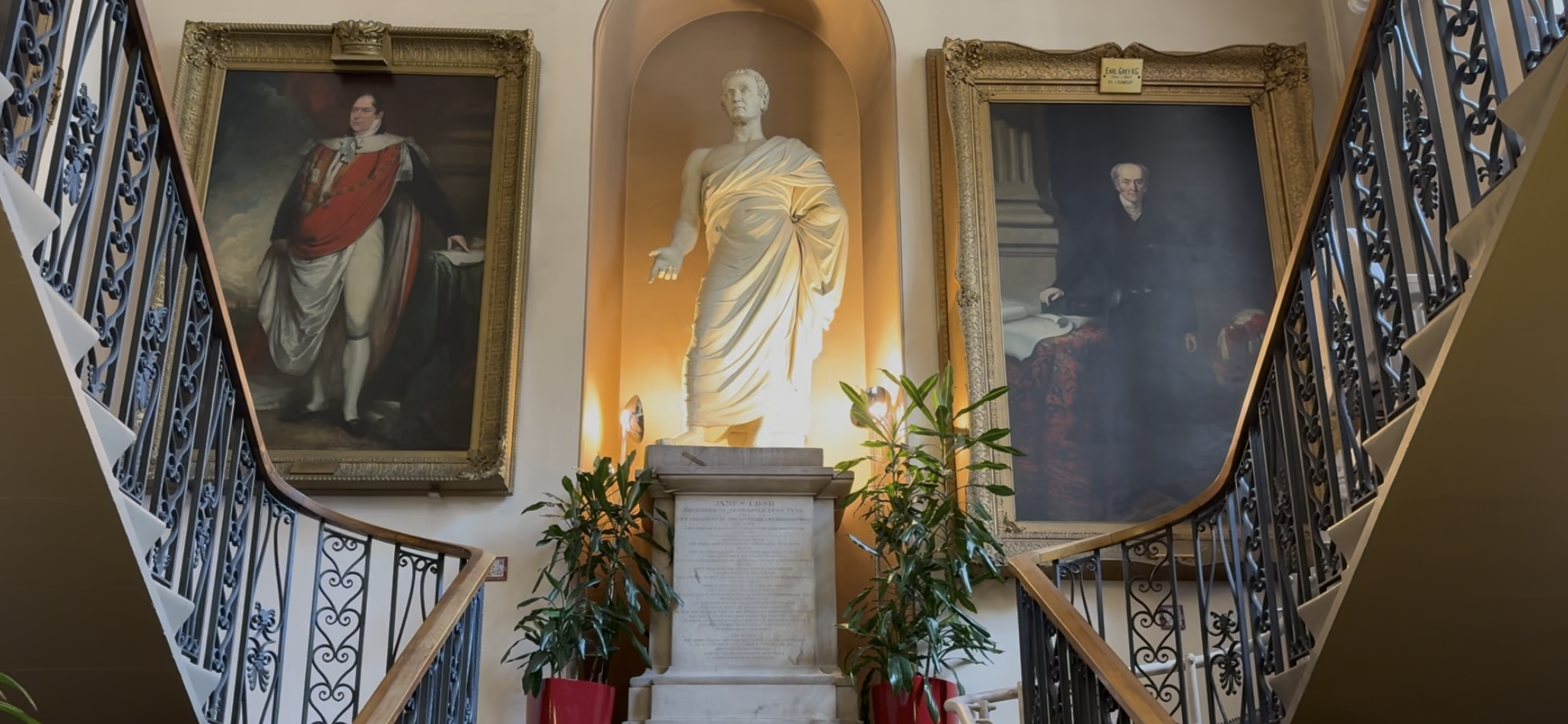
Newcastle’s Literary and Philosophical society celebrated 200 years of its permanent Westgate Road home, with a varied programme of talks and events to mark the occasion.
Last month, Newcastle’s ‘Lit and Phil’ celebrated an historical milestone, with the 18th July marking 200 years to the day since the society moved into its current neoclassical home.
With a growing collection of over 200,000 books, as well as an extensive library of recorded music, this culture magnet is the largest independent library outside of London.
Having hosted the likes of Oscar Wilde, Joseph Swan and more recently Ann Cleaves, this elegant building has existed not only as a sanctuary for book lovers, but also a centre for education, invention, and debate.
To shine a light on the society’s illustrious past, The Yard spoke to historian and biographer Henrietta Heald following her talk on ‘The Armstrongs and the Lit & Phil’, one of many guest lectures delivered to celebrate the bicentenary.
A lot has changed in the 200 years since the society moved into Westgate Road. While the talks and events it sees today may fall short of Joseph Swan’s lightbulb demonstration, the society maintains a prolific programme of around 150 events a year according to head librarian Kay Easson.
“A lot of our events are free, and that’s important, because there’s little barrier there. If you’re of low income or a poor student, come to this event, we’re not going to charge you a penny So that’s important – making it as accessible as possible,” Kay says.
Work began in January to organise the society’s busiest year of events yet, engaging more speakers than ever before and strengthening ties to local institutions such as Northumbria University.
One monthly series has involved revisiting lecture titles of various fields from the 19th and early 20th centuries, such as ‘Do plants think?’, and challenging contemporary academics with presenting them to a modern audience.
Members have also had the opportunity to participate directly in some projects marking the bicentenary.
‘Mrs. Affleck’s affliction’ saw members compete in writing monologues for the mysterious titular cleaner who worked at the society for over 25 years, mostly before the current building existed.
The winning monologue from 40 submissions was used to ‘bring Mrs. Affleck to life’ at the members bicentenary party on the 18th July, through a recorded soundscape.
“This is more than a library. It’s a cultural resource, and everybody’s welcome…” – Kay Easson
“This is more than a library. It’s a cultural resource, and everybody’s welcome,” Kay explains, “however, we’re still a working lending library, and the core of our mission – which is education – hasn’t changed at all for 200 odd years.”
Even so, in her 25 years at the society, Kay has seen how it has had to adapt to survive.
“It’s changed a lot in terms of how the Lit and Phil’s used, and how many people use it, the different types of people that use it and what we do on a day to day basis,” she says.
“It’s far more diverse. Students have found out about the place. You see families during the holidays, you see kids. So it’s much busier and much more vibrant than it ever was,”
“Anybody can walk in here and, member or not, you can consult the collection (…). We’re quite proud of that. We think access is really important.”
This openness and accessibility has taken its toll on the society’s collection, with ‘hundreds of books, if not thousands’ requiring remedial attention. But to Kay, this is a necessary price to pay.
“People want to handle and see old books. We’re not a museum, so a lot of our books are in bad condition because they’ve been used. And that’s important for us,” she says.
“People want to handle and see old books. We’re not a museum, so a lot of our books are in bad condition because they’ve been used. And that’s important for us…” – Kay Easson
“But if a book doesn’t move off the shelf for 100 years, I don’t mind. In a public library that would have been disposed of. So we really keep up with a permanent collection; Permanent means permanent.”
“But it’s also [about] looking forward,” Kay says, recognising that the Lit and Phil, currently under the presidency of Alexander Armstrong, must continue to evolve.
Recently succeeding in a Heritage Lottery Fund bid, the society intends to use the funding to review their processes and begin plans on refurbishment and improving infrastructure, including fixing a faulty chair lift and installing a passenger lift.
Nonetheless, Kay is also looking outward for the society’s future.
“We want to do more in the community and reach out to communities that might not necessarily think this is for them,” she says.
“I would say this is your society. It’s for everybody. It’s for you. Use it. Enjoy it. Become part of it.
“The Bicentenary has caught the imagination of some people, but the important thing is to keep that interest going. And we want to keep going for another 200 years, if not longer.”
